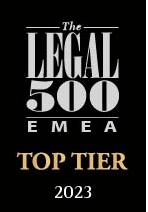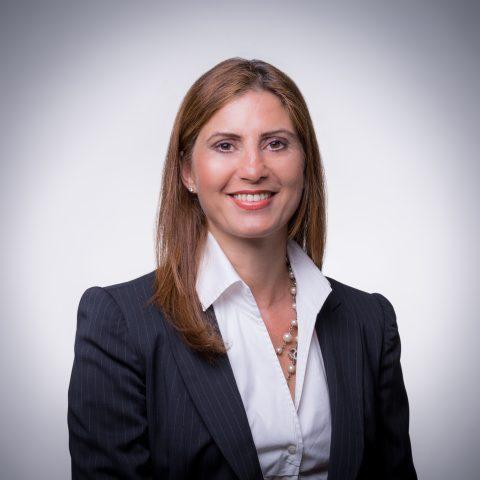Introduction
The UAE has recently ratified the 1996 Protocol to the 1976 Convention on Limitation of Liability for Maritime Claims (LLMC) and this protocol will enter into force on the 23rd of May 2021.
What this will mean for the maritime industry and the applicability of the LLMC Convention and the respective Protocol in the UAE for any potential claim against a shipowner (i.e. Owner, Charterer, Manager or Operator) or salvor, is summarized in ten points:
- Background
Historically, the Limitation of Liability for Maritime Claims Convention was ratified to encourage and foster international trade by sea, by permitting shipowners and salvors to limit their liability under certain circumstances and for specified claims. Additionally, it was designed to replace the Brussels Convention, which by this time had become obsolete, due to the increased value of cargo and seagoing vessels.
The LLMC 1976 Convention had been ratified by the majority of contracting States and was ratified by the UAE in 1997.
Since then, there have been two further amendments, both focusing on raising the amount claimable. The first set of amendments was introduced by the Protocol of 1996 (‘LLMC Protocol 1996’) on the 2nd of May 1996 and subsequently applied on the 13th of May 2004. In 2012, the second set of amendments was implemented by a decision of the Legal Committee of the IMO, whereby the limits of liability contained in the LLMC PROT 1996, were increased with an effective date of 8th June 2015.
- Which types of claims against shipowners and salvors will face these specified limits?
- Claims for loss of life or personal injury,
- Property claims (including damage to other ships, harbour works and water basins),
- Salvage and Wreck Removal
It is also important to understand that the LLMC Convention applies to a number of other Conventions as part of the IMO’s Liability and Compensation Regime, i.e. Oil Pollution, Bunker Spills, HNS Damage etc.
- What are the amendments of the 1996 Protocol to the 1976 Convention?
There are three main amendments for limitation of the liability, all focusing on the impact of inflation and based on experience of claim amounts:
a. The minimum tonnage for limitation purposes has been increased from 500 GT to 2,000 GT;
b. The per-ton limit has been increased throughout the tonnage levels;
c. The overall limit for passenger claims is removed and the limit of liability per passenger is increased.
The 1996 Protocol also introduced a “tacit acceptance” procedure for further increasing these amounts. This means increases can be decided by the IMO without the need of a ratification by the Contracting States.
- What changes have been brought by the 2012 Amendments to the 1996 Protocol?
The 2012 amendments came into force in 2015.
The Limits of liability under the original LLMC 1996 protocol have been increased by 51%, prompted by a number of high-profile bunker pollution incidents.
Under the amendments to the 1996 Protocol, the limits are raised as follows:
The limit of liability for claims for loss of life or personal injury on ships not exceeding 2,000 gross tonnage is 3.02 million SDR (up from 2 million SDR).
For larger ships, the following additional amounts are used in calculating the limitation amount:
- For each ton from 2,001 to 30,000 tons, 1,208 SDR (up from 800 SDR).
- For each ton from 30,001 to 70,000 tons, 906 SDR (up from 600 SDR).
- For each ton in excess of 70,000, 604 SDR (up from 400 SDR).
The limit of liability for property claims for ships not exceeding 2,000 gross tonnage is 1.51 million SDR (up from 1 million SDR). For larger ships, the following additional amounts are used in calculating the limitation amount:
- For each ton from 2,001 to 30,000 tons, 604 SDR (up from 400 SDR).
- For each ton from 30,001 to 70,000 tons, 453 SDR (up from 300 SDR).
- For each ton in excess of 70,000 tons, 302 SDR (up from 200 SDR).
These increased limits will automatically apply in the UAE by the 23rd of May 2021 when the 1996 Protocol will come into force.
- What is the SDR and how will the limitation be calculated under the 1996 Protocol (applying the 2012 margins)?
a. The SDR is the short term of Special Drawing Rights, which is an international type of monetary reserve currency created by the International Monetary Fund (IMF) in 1969 that operates as a supplement to the existing money reserves of member countries, and is essentially an artificial currency instrument used by the IMF, built from a basket of important national currencies.
The daily conversion rates for SDR’s can be found on the IMF Website: http://www.imf.org/ .
b. Example for the formula:
Provided that 1 SDR = 5.273
Loss of life or personal injury claims (for the ship with tonnage 15,000 gt)
For the first 2000 tons = SDR 3.02m = AED 15,924,478
(15000 gt – 2000 gt ) X 1,208 SDR = SDR 15,704,000 = AED 82,807,288
Total = AED 15,924,478+ AED 82,807,288 = AED 98,731,766
In respect of other claims (for the ship with tonnage 15,000 gt)
For the first 2000 tons = SDR 1.51 m = AED 7,962.360.57
(15000 gt – 2000 gt) X 604 SDR = SDR 7,852,000 = AED 41,404,275
Total = AED 7,962.360.57 + AED 41,404,275 = AED 49,256,275.
- Is it possible to limit your liability before the UAE Judicial system?
Prior to the ratification of the LLMC Protocol 1996, uncertainty surrounded the application of the concept of the limitation of liability before the UAE Courts due to contradictions between LLMC and UAE Maritime Law No 26 of 1981 (‘UAE Maritime Code’). The simple reason was the lack of a UAE Law regulating how the system of liability has to be applied.
However, it is anticipated that the ratification of the LLMC Protocol 1996 will subsequently encourage the Ministry of Justice to draft the respective Law in order to guide UAE Courts.
- Will it be possible to establish a Limitation Fund in the UAE?
Currently, there is an additional overlaying uncertainty when it comes to the establishment of the limitation fund under the UAE Judicial System, and the concept of constituting a limitation fund in the UAE is yet to be tested by the UAE legal and litigation systems. Hence, it is currently not possible in UAE Courts (with the exception of the DWT Tribunal in the DIFC).
- What type of guarantee would be acceptable before the UAE Courts?
According to Article 11.2 of the LLMC, the fund may be constituted in the form of either an acceptable guarantee or by depositing the sum before the competent Court or Authority.
Therefore, according to the current regulation in the UAE, the acceptable form to constitute limitation funds would be either a manager’s cheque or cash which should be deposited with the Courts.
The concept of a Letter of Undertaking (LoU), provided by the respective P& I Club is neither recognised, nor accepted by the UAE Court and other governmental bodies.
However, we believe that the amended Maritime Commercial Code, once entering into force, may bring a change.
- Can a shipowner limit its liability for claims brought forward by Ports?
As mentioned above, a shipowner/ salvor can limit its liability for claims with respect to Wreck Removal and Salvage of the vessel or Cargo. These kinds of operations are usually very cost intensive and the limit as per the LLMC is exceeded in most cases. Hence the LLMC Convention allows contracting states to opt out of these provisions and a majority of maritime hubs have done so. We would say “Watch this Space” as we estimate UAE Ports to raise this topic with the government and there is a likelihood that the UAE will not allow to limit liability for these kinds of claims.
- What are the benefits of ratifying the LLMC Protocol 1996?
a. A higher limit of liability under the LLMC Protocol 1996 (as amended), reflecting the actual claim amounts
b. Encouraging the ratification of further conventions such as the Civil Liability for Bunker Oil Pollution Damage of 2001 and Nairobi International Convention on the Removal of Wrecks of 2007.
c. Providing a legal infrastructure which is in accordance with international standards and thus providing clarity.
This article aims to give a summary and overview. Nevertheless, we are sure that this topic has many open questions remaining, and our experts are always available to hear new inputs and discuss further.
If you wish to bring some additions, discuss some points in detail or if you have any questions, please contact our dedicated team of maritime lawyers:
Jasmin Fichte – Managing Partner – info@fichtelegal.com
Shehab Mamdouh – Senior Associate – info@fichtelegal.com



